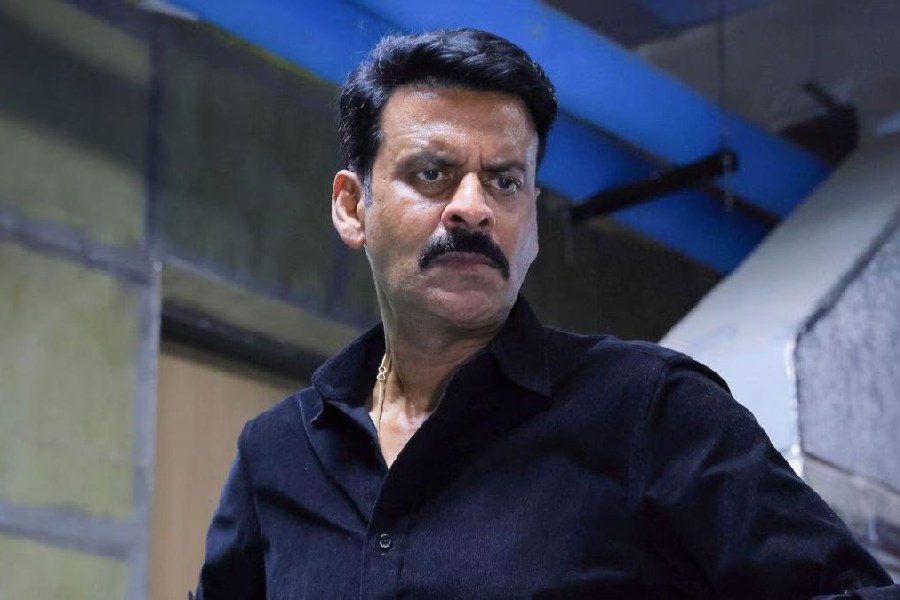Behmai, July 28 :
Behmai, July 28:
'For 20 years we wept tears of blood while the whole world - government, media, politicians, filmmakers - made a heroine out of a woman who made me fatherless when I was a child of three,' shouts a hysterical Lallan Singh, now 24.
The town is giving vent to its emotions at last. But they deny knowing anyone by the name of Sher Singh Rana or Pankaj Kalra - the self-confessed killer of Phoolan Devi. He had claimed yesterday that he had been to Behmai last year and 'saw the pain and anger on the faces of the widows'. If he did, no one in Behmai remembers either him or his visit.
To these people, it doesn't really matter who killed the 'bandit'. Two decades ago, this village of 100 families cremated 20 of their men on a single day. Now, no one here is sorry - at heart - that Phoolan is dead.
For the record, though, they have their lines memorised for the cameras. 'We are sorry. She should not have been killed like this...' But underneath surges a volcano of hatred.
Tears roll down the cheeks of Raja Ram Singh. 'I was born a Thakur, a Kshatriya warrior by birth and I hid under the haystack trembling while I saw them dragging away my brothers. My brothers were shot while I hid inside like the coward that I am. I have hated myself since. They shot 27 of them. This village of Thakurs was suddenly a hamlet with two dozen young widows.'
'They came looking for my husband,' said 44-year-old Santoshi Devi, the widow of Banwari Singh who was one of those killed. 'When I refused to let them in, one of the dacoits picked up my six-month-old daughter and threw her down. My Sita has not grown since.'
Memory haunts Lallan. 'My father was dragged out of his hut and shot in the head. Every Diwali, Holi and Karwa Chauth, I have grown up seeing my mother weep and sigh. I have never known what it means to have a father. What wrong did my father do?' he asks.
Mention the gangrape, and Raja Ram shakes his head. 'Kissi bhi mai ka lal mein itna himmat nahi tha ke woh Phoolan ke taraf aankh utha kar bhi dekhe. She was one woman, a leader in a gang of 50 men and all 50 of them ate out of her hands. You think people like us with wives and children would have raped her in the presence of our mothers and sisters. Don't we live in society?' says Raja Ram.
Ramesh Singh, now the pradhan of the village, was not present during the massacre. He was away working at the fields when Phoolan and her gang struck.
Singh, however, recalls: 'The situation of this village during that time was unimaginable. Today's genteel intelligentsia has no idea. The police would come here to receive complaints dressed in plain clothes. In the late seventies and early eighties there was no government in Behmai. We had a sarkar of dakus.'
Raja Ram was the key witness to the Behmai massacre. He was the person who went to the police station to report the killings on the evening of the massacre.
'Around 40 of them came around 2.30 pm that day. They surrounded the village. With the Yamuna on one side, our men could not even run. Man Singh, Balwan, Shwepal, Mustakim, Phoolan Devi and their men dragged all the men present in the village to the place next to the well and shot them. Twenty-seven men were shot. Twenty died on the spot. And they were gone by 5 pm,' recalled Raja Ram.
Though no villager says Phoolan personally killed all the victims, they believe she was the 'root cause'.
According to Ramesh Singh, the Behmai episode started with each gang leader wanting to possess Phoolan.
'There would be endless
fights between gang members over who would have Phoolan
for the day. Sometime in 1980, Vikram Malla shot Babu
Gujjar dead at the Devkali mandir near Oraiya after a showdown.
As Babu Gujjar was a Thakur who could not possess Phoolan and Vikram Malla, a lower caste man, did, this infuriated Sriram and Lalaram (the other gang leaders),' he said.
Phoolan was allegedly gangraped by Sriram, Lalaram and their men. The rape was the outcome of Thakurs not being able to have Phoolan, villagers here say. Behmai denies Phoolan was raped in the village but Phoolan picked Behmai for her revenge.
'Because this is the village of Thakurs. More than 98 per cent of the people here belong to that caste,' Raja Ram says.
'She alleged that we were sheltering Lalaram and Sriram. But we were helpless. Till day, Chambal dacoits are ruled by caste factors and every caste supports its own gang. The police never came here, the government did not bother for our safety. We too needed protection. But it is wrong to say that we, the villagers here, raped her. We did not have the guts to,' he added.
 Thursday, 12 February 2026
Thursday, 12 February 2026










